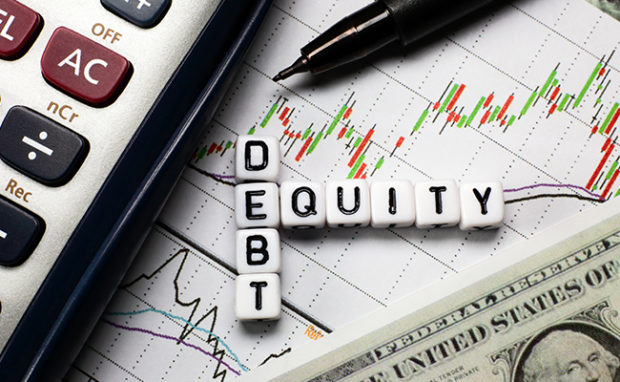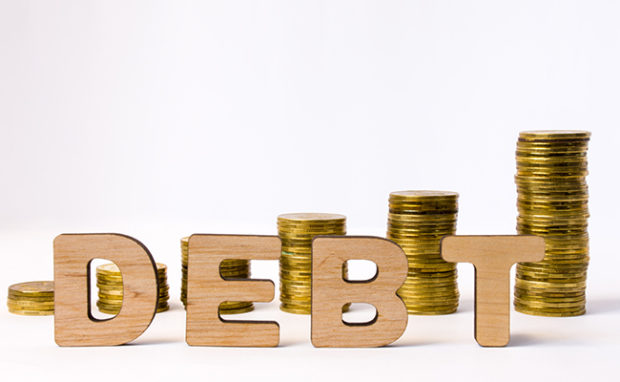How Can Your Debt Equity Ratio Impact Your Overall Finances?
Your debt-equity ratio has a lasting impact on your finances. It can affect your ability to obtain loans, such as mortgages and personal loans. It can also impact your household budget. It’s important to keep track of your financial ratio and work to improve it, even if you are not planning to seek loans.

What is Debt Equity Ratio?
A debt equity ratio is also called a debt-to-income ratio. This number clarifies the relationship between your debts and your income. Usually, the term debt-equity ratio is used to evaluate a company’s financial standing, while the debt-to-income ratio is used to evaluate an individual or family’s financial situation.
Your debt-equity ratio will tell you how well you are doing financially. You can find it by first adding up all your debt, then adding up all your income and assets to find your net worth. Remember that income refers to your take-home pay – meaning it excludes taxes and contributions, such as pension plans. Debt does not include expenses such as food, utilities, and other bills. Divide your total long term debt by your net worth and you will find your total shareholder equity.
To read your ratio and understand its meaning, just remember that the higher your ratio, the more dangerous your situation. This means your debt is closing in on your income. Conversely, a lower ratio means you have plenty of breathing room. This is helpful when you are trying to obtain loans. Most financial experts recommend a debt-equity ratio of no higher than 36 percent. A ratio below 30 percent is considered excellent and a ratio above 40 percent is considered very problematic.
Credit Card Balances
Credit card balances add to your outstanding debt, and so they are included in your debt-equity ratio. Your credit cards also play a part in your credit ratio, which shows how your outstanding balances relate to your maximum credit limit. Generally, if you have a higher debt to credit ratio, you also have a high company debt obligation to avoid a higher risk financial leverage. If you intend to apply for mortgages or other loans, you will want to keep your balances at a point where you owe 30 percent or less than all available credit.
Personal Loans
Typically, lenders and investors look at two forms of debt-equity ratios: a front-end ratio and a back-end ratio. A front-end ratio, or housing ratio, shows how much of your monthly gross income is going towards housing-related expenses. It includes mortgages, property taxes, homeowners’ insurance, and association fees, and excludes all other debts and expenses. A front-end ratio should be no higher than 28 percent.
The back-end ratio is also important. It shows how much of your income is going towards all of your debts, not just housing costs. This includes credit card bills and any loans, such as car loans, student loans, and personal loans. The back-end ratio should be no higher than 36 percent.
These numbers are not the last word, though. Some lenders may be more forgiving with debt-equity ratios, and some may even accept ratios up to 50 percent. However, keeping a low ratio is good for your financial health and gives you more room to breathe when you add a new loan.
Related Articles
DEBT PAYOFF CALCULATE THE DEBT TO EQUITY
MOST EFFECTIVE WAYS TO NEGOTIATE YOUR DEBT
How to Lower Your Debt Ratio
If you find that your debt ratio is above the recommended limits, you’ll want to take steps to lower it. This is especially important when you are planning to secure a mortgage to buy a home or a personal loan for other needs. Here are the steps you should take to lower your high debt-equity ratio:
Create a household budget to track spending
You should know exactly how much money is going towards each debt or expense. Determine how much of your income is going towards luxuries and things you don’t need.
Eliminate unnecessary purchases
Once you have determined the luxuries that you are spending money on, work on eliminating them. These purchases could include impulse buys or eat out too often is a noticeable cash flow loss. Cutting them out will allow you to focus on paying down your debts.
Create a plan
There are several methods you can use to pay down debts. Two of the most popular methods are:
Snowball method
With this method, you can make minimum payments on all your debts while you focus on paying off the smallest debt. Once that debt is paid off, you move on to the next smallest, and so on until all debts have been paid.
Avalanche/ladder method
With this method, you are focusing on the largest debt rather than the smallest one. Again, you make minimum payments on all debts. At the same time, you work on paying off the debt with the highest interest rate.
Work on lowering interest rates
Debts are easier to manage when they have lower interest rates. This is especially important for credit card debt. You can contact the company directly to find out if there’s a way to lower your interest rate or you can try consolidating your debt to obtain a lower rate. This is accomplished by either transferring debt to a new or existing credit card with a lower rate or taking out a personal loan with a lower rate.
Don’t take on more debt
Paying down debt and attaining lower interest rates won’t matter if you keep piling on the debt. Try to avoid adding new credit cards and loans to the mix, and don’t continue to use high-interest credit cards for new purchases.
Summary
A debt equity ratio is an important number to be aware of. It allows you to be aware of your financial standing, allowing you to take steps to correct issues and eliminate debt. It also impacts your debt, since how much you owe affects how much you can borrow. It affects your ability to secure loans and there is a certain percentage that you should stay below in order to look good to lenders. Keeping your debt ratio low is good for your budget low cost of capital, financial standing, better credit score, and low total debt.
Published January 16, 2019; UPDATED May 22, 2019.




